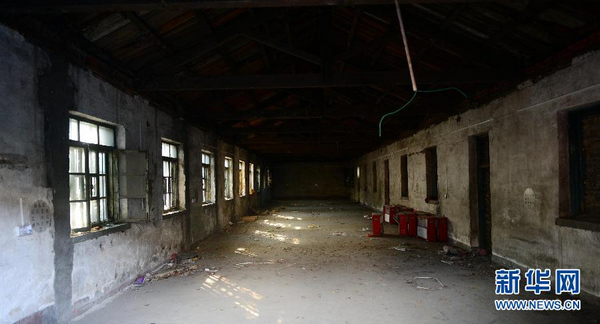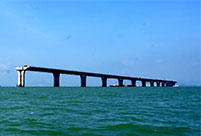

 |
BEIJING, Sept. 16 -- Friday marks the 84th anniversary of an incident with widely undervalued global importance -- the invasion of northeast China by Japanese troops on Sept. 18, 1931.
The invasion, which came eight years prior to the German invasion of Poland but is much less known, should be regarded as the real starting point of the war. The incident, also known as the Manchurian Incident, also ushered in the 14-year Chinese People's War of Resistance Against Japanese Aggression.
The Japanese invasion was among the first challenges from the Axis powers against the weak world order forged after World War I. It made China the first country to fight the Japanese forces.
The fall of northeast China, the first invasion launched by fascist Japan, not only led to the war between the two East Asian neighbors, but also developed into part of a global catastrophe involving more than 60 countries and regions and three quarters of the world population.
What happened on Sept. 18, 1931, when Japanese troops used the pretext of an explosion along a Japanese-controlled railway to occupy the city of Mukden (today's Shenyang), was the Chinese Pearl Harbor.
Japan's ambitions to dominate the world were boosted by the Sept. 18 victory.
The occupation of northeast China was long-premeditated by Japanese militarists. The Tanaka Memorial to the Throne in 1927 revealed Japan's desire to annex China as part of its strategy to conquer and dominate the world as early as in the 1920s.
It was under this strategy -- "to conquer China, we must conquer Manchuria and Mongolia; to conquer the whole world, we must first conquer China" -- that the Japanese provoked the Sept. 18 Incident and established a puppet state there months later.
It was using the same strategy that Japan stirred up the Marco Polo Bridge Incident in 1937, which marked the beginning of Japan's full-scale invasion of China during the Second Sino-Japanese War.
Although the ruse of war was soon exposed to the international community, leading Japan to diplomatic isolation, the Western countries, including Britain and the United States, continued their East Asian policy with a negative attitude toward the region's affairs.
Their shared policy appeased Japan even after it invaded China, stimulating the island nation's greed. The Chinese resistance from 1931 to 1937 remained largely unknown to, if not ignored by, the Western world.
The most precious lesson the world can learn from the Sept. 18 incident is that an appeasement policy will lead to nothing but disaster, to which Western countries are not immune. The attack on Pearl Harbor and the Bataan Death March during WWII have shown this.
This year marks the 70th anniversary of the victory in the World Anti-Fascist War. The world is facing a Japan that is similarly disturbing as it was decades ago.
An array of aggressive moves, including the passing of controversial security bills by Japan's lower house of parliament to expand the role of the country's Self-Defense Forces, highlight the Japanese government's consistent deviation from the nation's peaceful constitution.
As an old Chinese saying goes: "It is always dangerous to raise a tiger cub."
Keeping the memory of the Sept. 18 Incident alive and assigning it due importance will do more to safeguard peace.
 Art photos of Chinese beauty in Han Chinese clothing
Art photos of Chinese beauty in Han Chinese clothing Stunning photos of air show in China’s V-Day parade
Stunning photos of air show in China’s V-Day parade Construction of HK-Zhuhai-Macao Bridge enters final stage
Construction of HK-Zhuhai-Macao Bridge enters final stage Models change clothes on street in Hangzhou
Models change clothes on street in Hangzhou Model of heavy-lift copter makes debuts at Tianjin expo
Model of heavy-lift copter makes debuts at Tianjin expo Charming Chinese female soldiers
Charming Chinese female soldiers Beauty vs. muscular man
Beauty vs. muscular man First day in kindergarten
First day in kindergarten Pilots attending V-Day parade take group photos with their planes
Pilots attending V-Day parade take group photos with their planes Market plunges despite SOE plans
Market plunges despite SOE plans Refugee crisis spreads Syria woe to Europe
Refugee crisis spreads Syria woe to Europe China agrees to share advancements in satellites, telecom with Arab states
China agrees to share advancements in satellites, telecom with Arab states Chinese overseas investment hindered by lack of experience, political opposition in host countries
Chinese overseas investment hindered by lack of experience, political opposition in host countriesDay|Week